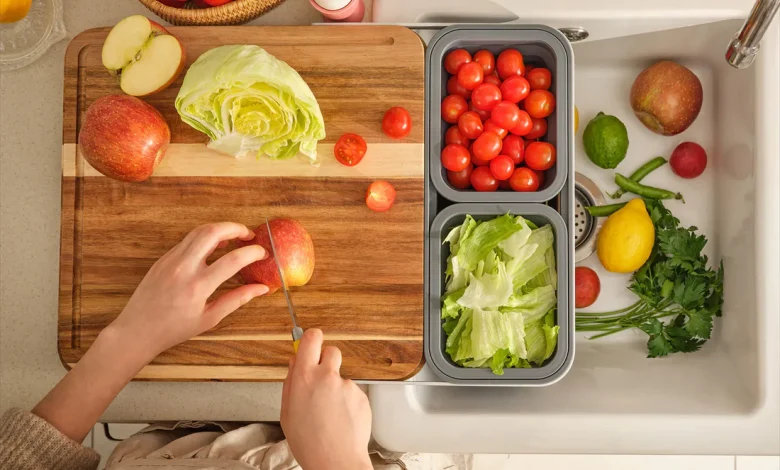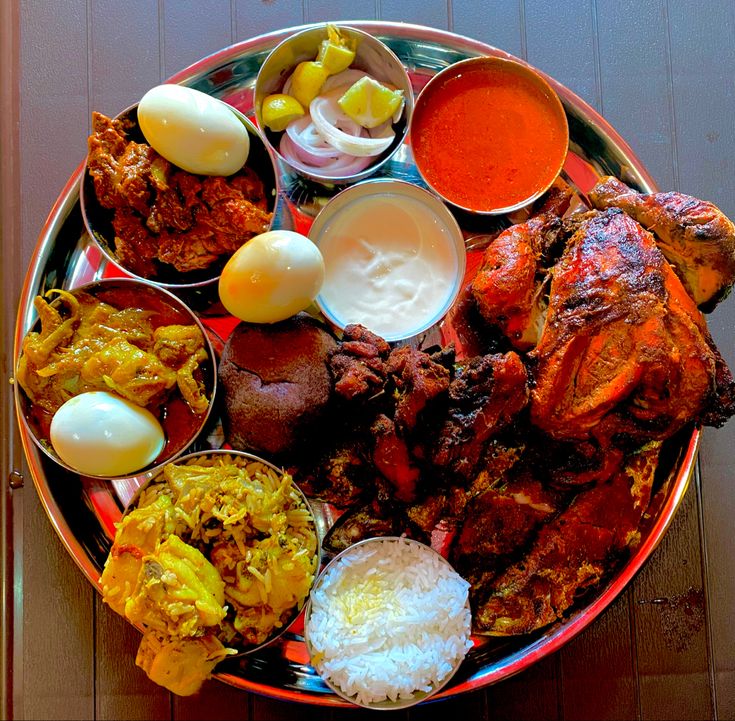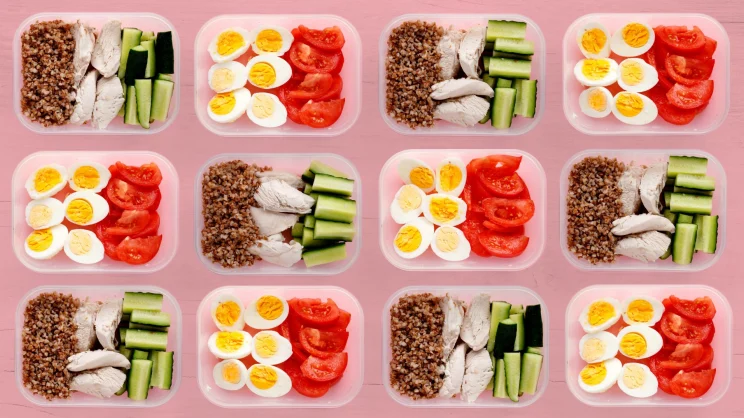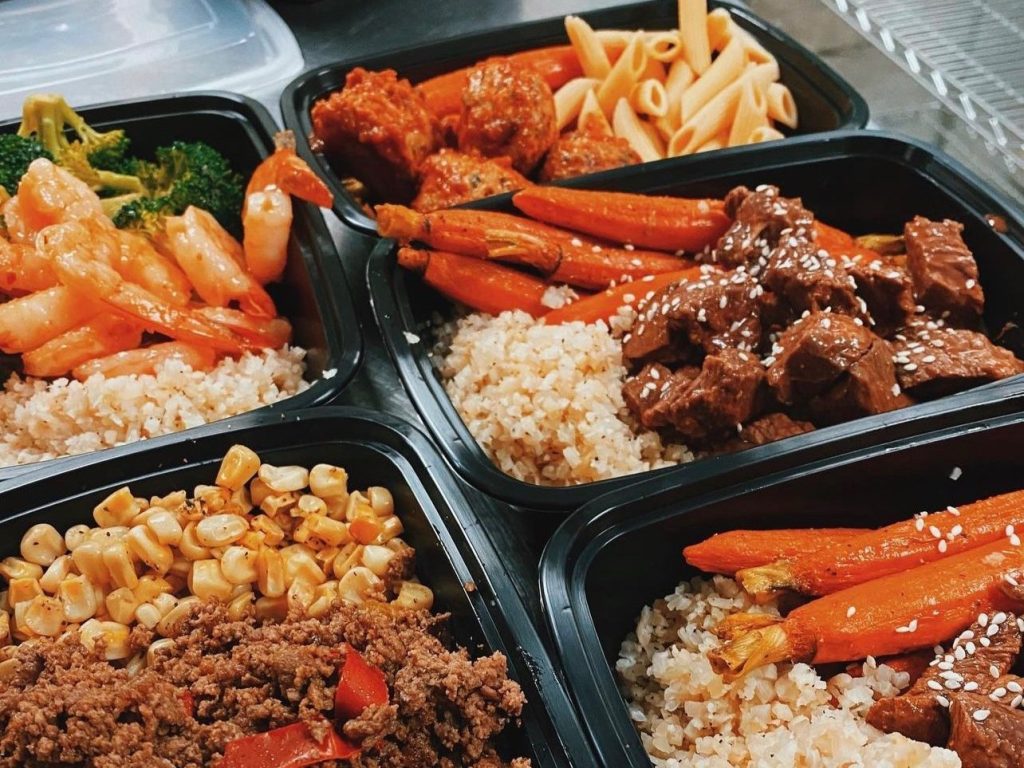Meal Prep as a Lifestyle: Not Just for Gym Rats

Meal prep as a lifestyle: not just for gym rats is a growing movement. Once seen as a habit for bodybuilders and athletes, meal prepping is now embraced by busy parents, students, professionals, and anyone who wants to save time, eat healthier, and reduce stress. This guide explains why meal prep is for everyone, how to get started, and how it can fit any lifestyle. You’ll find simple explanations, real case studies, key features, tips, tables, pros and cons, and answers to common questions.
Introduction: Meal Prep as a Lifestyle, Not Just for Gym Rats
Meal prep means planning, cooking, and storing meals ahead of time. It helps people eat better, save money, and avoid last-minute stress. While it’s popular with fitness fans, meal prep is now a smart choice for anyone—no matter your schedule, diet, or cooking skills.
What Is Meal Prep?
Meal prep is the process of preparing meals or ingredients in advance. This can mean:
- Chopping veggies and marinating proteins ahead of time
- Portioning snacks or breakfasts for grab-and-go convenience
- Cooking full meals for the week

Meal prep can be as simple or as detailed as you like.
Key Features of Meal Prep as a Lifestyle
- Time-saving: Cook once, eat many times.
- Healthier choices: Control ingredients, portions, and nutrition.
- Budget-friendly: Buy in bulk, waste less food.
- Customizable: Fits any diet—vegan, keto, family-friendly, or picky eaters.
- Less stress: No more “what’s for dinner?” panic.
- Flexible: Prep for a day, a week, or just a few meals.
Why Meal Prep Is for Everyone
Meal Prep as a Lifestyle—Who Benefits?
- Busy professionals: Save time on hectic workdays.
- Parents: Make healthy family meals with less effort.
- Students: Eat well on a budget and avoid fast food.
- Seniors: Make cooking easier and safer.
- Anyone who wants less stress: Enjoy more free time and better meals.
- People with health goals: Manage calories, allergies, or special diets.

Types of Meal Prep
Meal Prep as a Lifestyle—Different Approaches
- Batch cooking: Make large portions of one meal (like chili or soup) and eat it throughout the week.
- Individual meals: Prepare and portion separate meals for breakfast, lunch, or dinner.
- Snack prep: Portion nuts, fruits, or healthy treats for easy snacking.
- Ingredient prep: Chop, cook, or marinate ingredients to mix and match quickly.

Benefits of Meal Prep
- Saves time: Fewer daily cooking and cleaning sessions.
- Improves nutrition: Homemade meals are usually healthier.
- Reduces food waste: Plan portions and use leftovers.
- Saves money: Bulk buying and less takeout.
- Supports goals: Easier to stick to diets or nutrition plans.
- Reduces stress: No last-minute meal decisions.
Challenges and Solutions
Meal Prep as a Lifestyle—Overcoming Obstacles
| Challenge | Solution |
|---|---|
| Boredom | Try new recipes, spices, or cuisines |
| Time to prep | Start small—prep just 1-2 meals at first |
| Storage space | Use stackable containers, freeze extras |
| Spoilage | Choose meals that keep well, label dates |
| Lack of ideas | Use meal prep blogs, apps, or cookbooks |
| Family preferences | Involve everyone in planning and prep |
Meal Prep vs. Cooking Daily Table
| Feature | Meal Prep Lifestyle | Cooking Daily |
|---|---|---|
| Time spent cooking | Less overall | More daily effort |
| Food variety | Can be high with planning | High, but more planning needed |
| Stress level | Lower | Higher (last-minute rush) |
| Cost | Lower (bulk buying) | Higher (small portions) |
| Food waste | Less | More |
| Nutrition control | High | Varies |
| Flexibility | Medium (pre-planned) | High (spontaneous) |
The Evolution of Meal Prep: From Fitness Trend to Everyday Essential
Meal Prep as a Lifestyle—A Brief History
- Origins: Meal prepping began as a strategy for athletes and bodybuilders to control nutrition, calories, and macros.
- Mainstream adoption: Rising food costs, busy schedules, and health awareness have made meal prep a practical solution for families, professionals, students, and seniors.
- Modern meal prep: Today, meal prep is about convenience, wellness, and sustainability—not just muscle gain.

The Science Behind Meal Prep: Why It Works
Meal Prep as a Lifestyle—Scientific Benefits
- Behavioral psychology: Prepping meals in advance reduces decision fatigue and impulse eating.
- Nutrition science: Home-cooked meals are linked to better diet quality, weight control, and lower risk of chronic diseases.
- Time management: Batch cooking and planning free up hours each week, reducing stress and last-minute choices.
Visual: Meal Prep Science Table
| Benefit | Scientific Reason | Real-World Impact |
|---|---|---|
| Healthier eating | Control over ingredients | Less processed food, more veggies |
| Weight management | Portion control, planned meals | Fewer calories, steady progress |
| Stress reduction | Fewer daily decisions | More free time, less anxiety |
| Cost savings | Bulk buying, less waste | Lower grocery bills |
Meal Prep for Every Lifestyle: Customizing Your Approach
Meal Prep as a Lifestyle—Personalization
For Families
- Family-style batch meals: Large casseroles, soups, or sheet pan dinners.
- Kid-friendly snacks: Pre-portioned fruit, yogurt, or homemade granola bars.
- Allergy management: Control every ingredient to keep meals safe.
For Professionals
- Grab-and-go lunches: Salads, wraps, or rice bowls pre-packed for the workweek.
- Healthy snacks: Nuts, veggie sticks, or hummus for energy between meetings.
- Portion planning: Avoids vending machines and expensive takeout.
For Students
- Budget-friendly: Beans, rice, and frozen veggies for affordable, nutritious meals.
- Microwave-ready: Meals that reheat well in dorms or shared kitchens.
- Late-night options: Healthy snacks and meals for study sessions.
For Seniors
- Easy-to-chew options: Soft stews, mashed veggies, or pureed soups.
- Small portions: Prepped for one or two, reducing waste.
- Safety: Less time at the stove, more control over nutrition.
For Special Diets
- Vegan/vegetarian: Batch-cooked grains, legumes, and roasted vegetables.
- Low-carb/keto: Prepped meats, eggs, and non-starchy veggies.
- Gluten-free: Rice, quinoa, and naturally GF proteins.
The Environmental Impact: Meal Prep and Sustainability
Meal Prep as a Lifestyle—Eco-Friendly Choices
- Less packaging: Bulk buying and reusable containers reduce plastic waste.
- Food waste reduction: Planned portions mean fewer leftovers in the trash.
- Local and seasonal: Prepping with local produce supports farmers and cuts food miles.
- Energy efficiency: Cooking in batches uses less energy than daily meal prep.
Visual: Meal Prep Sustainability Table
| Eco Benefit | Meal Prep Action | Example |
|---|---|---|
| Less plastic waste | Use glass or silicone containers | No more single-use bags |
| Reduced food waste | Plan portions, freeze extras | Fewer spoiled leftovers |
| Lower emissions | Batch cook, use local produce | Less energy, smaller carbon footprint |
Meal Prep Tools and Tech: Making Life Easier
Meal Prep as a Lifestyle—Tools and Apps
- Containers: Glass, BPA-free plastic, or stainless steel for safe storage.
- Kitchen gadgets: Slow cookers, rice cookers, air fryers, and blenders speed up prep.
- Apps: Meal planning and grocery list apps (like Mealime, Yummly, or Paprika) streamline shopping and scheduling.
- Labeling: Dry-erase markers or labels help track dates and contents.
Social and Community Aspects of Meal Prep
H2: Meal Prep as a Lifestyle—Building Connections
- Meal prep parties: Friends or neighbors gather to cook and swap meals, saving time and building community.
- Online sharing: Social media groups and forums provide recipe ideas, motivation, and accountability.
- Family bonding: Involving kids in planning and prep teaches life skills and healthy habits.
Overcoming Common Meal Prep Roadblocks
Meal Prep as a Lifestyle—Problem Solving
- No time: Start with prepping just one meal (like breakfast) or one day per week.
- Limited kitchen space: Use stackable containers, collapsible colanders, and multi-use gadgets.
- Picky eaters: Let everyone choose one meal each week to prep.
- Burnout: Try new recipes, swap meals with friends, or take a week off and order healthy takeout.
Expert Quotes
“Meal prep is about freedom—freedom from stress, unhealthy choices, and wasted time.”
— Dr. Ifeoma Okeke, Nutritionist
“Anyone can meal prep. It’s not about perfection—it’s about progress and making life easier.”
— Sarah Bello, Meal Prep Coach
Looking Ahead: The Future of Meal Prep
- Tech integration: Smart fridges, AI-powered meal planners, and delivery services will make meal prep even easier.
- Sustainability focus: More eco-friendly packaging, plant-based options, and local sourcing.
- Community growth: Meal prep will continue to bring people together—online and in person.
Case Studies: Real-Life Meal Preppers
Case Study 1: The Busy Mom
Sarah preps dinners on Sundays, saving hours during the week and making sure her kids eat healthy.
Case Study 2: The University Student
David cooks rice, chicken, and veggies in bulk, avoiding expensive takeout and eating better on a budget.
Case Study 3: The Office Worker
Lola brings prepped salads and snacks to work, helping her avoid vending machines and afternoon crashes.
Case Study 4: The Retired Couple
Mr. and Mrs. Okeke prep soups and stews in batches, making it easier to eat well and manage health conditions.
Case Study 5: The Vegan Athlete
Amina preps plant-based meals for the week to fuel her training and save money.
Case Study 6: The Picky Teen
Tunde helps his family prep meals he likes, making dinner less stressful for everyone.
Case Study 7: The Food Allergy Family
The Johnsons prep allergen-free meals in advance, avoiding restaurant risks and saving time.
Case Study 8: The Remote Worker
Carlos preps breakfast burritos and smoothie packs, making mornings easy and nutritious.
Case Study 9: The Lagos Entrepreneur
Chinedu preps jollof rice, grilled chicken, and veggie stir-fries on Sundays, fueling his workweek and saving money.
Case Study 10: The Remote Team Leader
Maria organizes virtual meal prep sessions with her global team, boosting morale and sharing healthy recipes.
Case Study 11: The New Parent
A new mom preps freezer-friendly meals before the baby arrives, making postpartum life less stressful.
Case Study 12: The Marathon Runner
Samuel preps carb-rich meals and protein snacks, supporting his training and avoiding last-minute junk food.
Pros and Cons Table
| Pros of Meal Prep Lifestyle | Cons of Meal Prep Lifestyle |
|---|---|
| Saves time and reduces stress | Initial prep can take hours |
| Supports healthy eating | May get repetitive without variety |
| Reduces food waste and saves money | Needs fridge/freezer space |
| Customizable for any diet | Some foods don’t store well |
| Less temptation for takeout | Upfront planning required |
| Great for families and singles | May feel restrictive to some |
Tips for Successful Meal Prep
- Start small: Prep just a few meals or snacks at first.
- Plan your menu: Choose recipes that use similar ingredients.
- Use good containers: Invest in leak-proof, stackable storage.
- Label everything: Write dates and contents on containers.
- Keep it simple: Focus on easy, balanced meals.
- Mix and match: Prep ingredients you can use in different ways.
- Freeze extras: Many meals freeze well for later.
- Try theme days: Like “Taco Tuesday” or “Soup Sunday” for variety.
- Get the family involved: Make meal prep a group activity.
- Stay flexible: Adjust your plan as needed for life’s surprises.
- Theme weeks: Rotate cuisines (Italian, Asian, African) to keep meals exciting.
- Double-duty ingredients: Cook proteins or grains that work in multiple dishes.
- Freezer meals: Prep and freeze soups, casseroles, or breakfast burritos for emergencies.
- Emergency kits: Keep shelf-stable, healthy options on hand for busy days.
Frequently Asked Questions (FAQ)
1. Is meal prep only for fitness or weight loss?
No, it’s for anyone wanting to save time, eat better, and reduce stress.
2. How long can meal prepped food last?
Most cooked meals last 3–5 days in the fridge; some can be frozen for weeks.
3. What are the best foods for meal prep?
Soups, stews, roasted veggies, grains, grilled meats, and salads (with dressing separate).
4. Do I need special containers?
No, but airtight, stackable containers make storage easier and safer.
5. Can meal prep save money?
Yes! Bulk buying and less food waste mean big savings.
6. What if I get bored?
Change up recipes, spices, and cuisines each week.
7. Is meal prep safe?
Yes, if you store food properly and reheat it well.
8. Can families meal prep together?
Absolutely! It’s a great way to teach kids cooking and teamwork.
9. What if I have dietary restrictions?
Meal prep lets you control every ingredient for allergies or special diets.
10. How do I start meal prepping?
Pick a few recipes, shop, cook, store, and enjoy! Start small and build from there.
Conclusion
Meal prep as a lifestyle: not just for gym rats is about making life easier, healthier, and more enjoyable for everyone. Whether you’re a busy professional, a student, a parent, or just want less stress at mealtime, meal prep can help you eat well, save money, and reclaim your time—no gym membership required!




